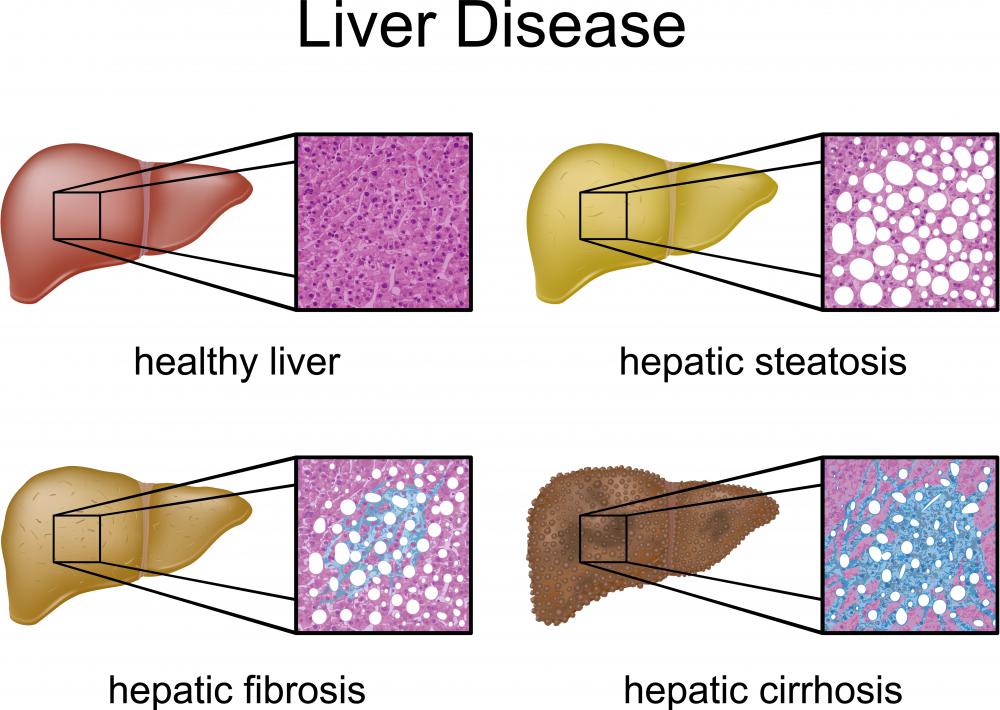At WiseGEEK, we're committed to delivering accurate, trustworthy information. Our expert-authored content is rigorously fact-checked and sourced from credible authorities. Discover how we uphold the highest standards in providing you with reliable knowledge.
What are the Causes of Pleural Effusion?
Pleural effusion occurs when fluids accumulate in the pleural space around the lungs. Causes of pleural effusion include pneumonia, tuberculosis, heart failure, and cancer. Kidney and liver disease, as well as some inflammatory disorders, can cause pleural effusion. Treatment for pleural effusion usually focuses on resolving the underlying cause of the disorder. The effusion itself is usually only treated when symptoms become troublesome.
There are two kinds of fluid that generally accumulate in the space of the chest cavity to cause pleural effusion. Exudate fluids are protein-rich and may be rather thick in texture. Transudate fluids are more watery in consistency. Blood, pus, and lymphatic fluids are some of the common body fluids that may build up in the pleural cavity. The type of fluid that accumulates depends largely on the individual causes of pleural effusion.

Symptoms of pleural effusion can include shortness of breath and pain in the chest. Many patients experiencing pleural effusion have no symptoms at all, or experience only mild symptoms. Severe pleural effusion can compress the lungs and cause difficulty breathing.
Doctors may confirm the presence of pleural effusion through the use of X-rays, CT scans and ultrasounds. A procedure known as thoracentesis can be used to remove some of the fluid with a needle. Examining this fluid is often vital to understanding the causes of pleural effusion in a particular patient.

Pleural effusion is most often related to respiratory disease. Disorders such as tuberculosis, lung cancer, and pneumonia can cause inflammation in the lungs and the tissues surrounding the lungs. Bacteria from wounds, ruptures, and abscesses in the chest or abdominal cavity can cause the build up of pus in the pleural cavity. Pneumonia, an often serious lung infection, can also cause pus to build up in the pleural space. Inflammatory conditions such as lupus or rheumatoid arthritis can also be among the causes of pleural effusion, though this complication is considered rare.

While most cases of pleural effusion are tied to respiratory disease, heart failure can also cause pleural effusion. Chronic heart failure damages the heart's efficiency and can allow fluid to seep out of the blood vessels around the heart and into the pleural cavity. Kidney disease and cirrhosis can also be among the causes of pleural effusion, since they can cause low blood protein levels and fluid accumulation in body cavities.

Treatment for pleural effusion usually varies widely, depending on the cause of the effusion. The effusion itself may be left untreated, to clear up when the underlying cause is resolved or brought under management. Pleural effusion is treated when pain and difficult breathing symptoms become apparent and troublesome. Drains, shunts, and injected medications are among the most popular treatments for pleural effusion.
AS FEATURED ON:
AS FEATURED ON:
















Discuss this Article
Post your comments